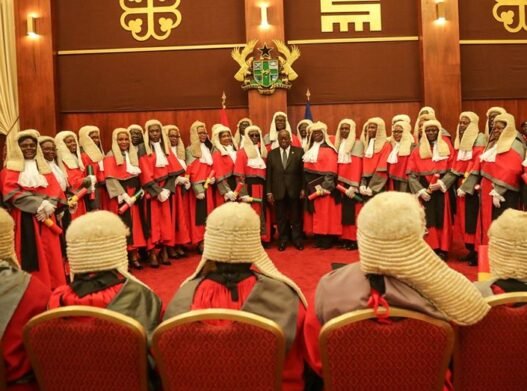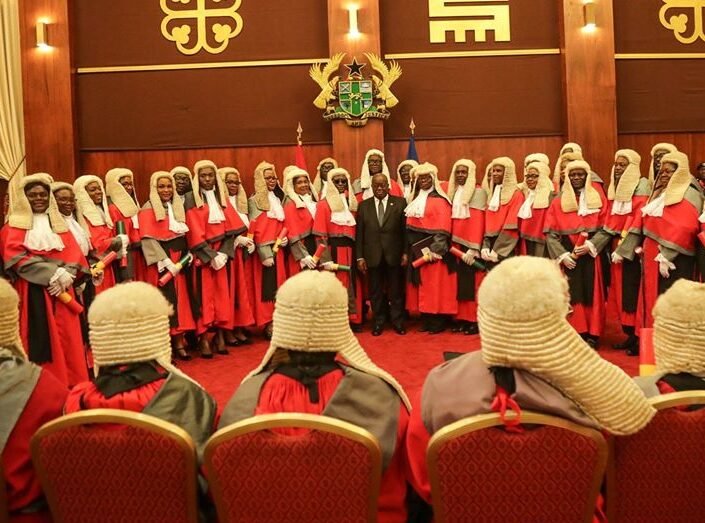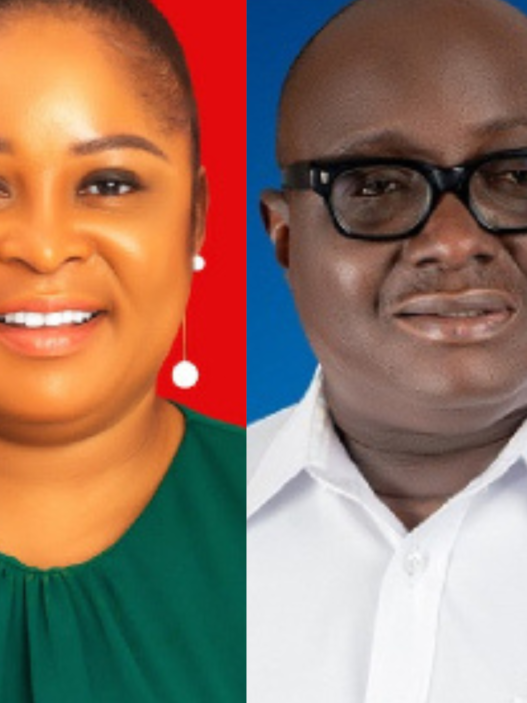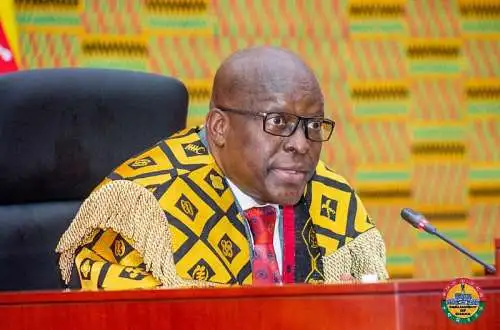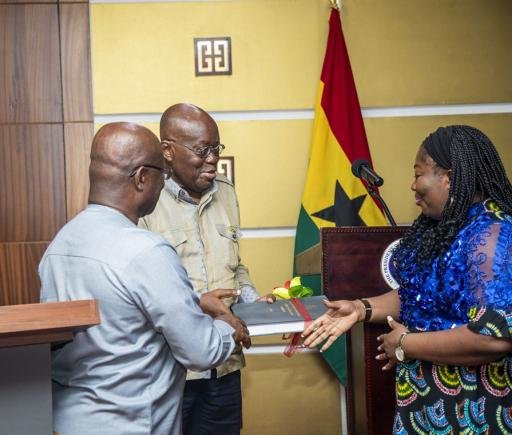The Supreme Court has overturned the re-collated parliamentary election results in Okaikwei Central, Ablekuma North, Tema Central, and Techiman South, nullifying the Electoral Commission’s (EC) declarations for these areas.
The ruling comes after intense legal and political debates over the re-collation process, which has faced significant criticism from the National Democratic Congress (NDC).
However, the court upheld the results for Nsawam Adoagyiri and Ahafo Ano South West, stating that these constituencies met the required legal standards.
The NDC had challenged a High Court order from December 20, which directed the EC to re-collate results in nine constituencies. So far, the EC has completed the process in seven of these areas, all won by New Patriotic Party (NPP) candidates, with Dome/Kwabenya and Ablekuma North still unresolved.
The NDC argued that the re-collation process was unlawful and that the High Court exceeded its powers, compromising the integrity of the electoral process.
Delivering the ruling in Accra on Friday, Justice Gabriel Pwamang stated, “We have decided to exercise our discretionary power to quash the orders for re-collation in Okaikwei Central, Ablekuma North, Tema Central, and Techiman South due to the unique circumstances of each case.”
This landmark judgment underscores the judiciary’s role in ensuring electoral processes adhere strictly to constitutional and procedural requirements. Political analysts believe the ruling will have far-reaching implications as stakeholders await the next steps.
The Ghanaian Supreme Court’s ruling to quash the High Court’s order for the Electoral Commission (EC) to re-collate parliamentary results for four constituencies—Okaikwei Central, Tema Central, Techiman South, and Ablekuma North—has rekindled debates about judicial independence, partisan maneuvering, and the broader health of the country’s democracy. While the ruling ostensibly rests on procedural fairness and the rules of natural justice, its timing, implications, and political ramifications invite a closer examination of the intersection between law, politics, and governance in Ghana.
Legal Context and Ramifications
At the heart of the Supreme Court’s decision is its interpretation of natural justice. The principle, grounded in Article 23 of Ghana’s Constitution, ensures that all administrative and judicial decisions must be “fair and just.” The court held that the High Court erred in failing to give the National Democratic Congress (NDC) candidates in the affected constituencies a chance to be heard before issuing its order. This failure, the Supreme Court ruled, invalidated the High Court’s decision.
The ruling also invoked procedural propriety under Ghanaian administrative law. Since the High Court’s order pertained to results that had allegedly already been declared, the Supreme Court maintained that a lack of proper hearing for the NDC candidates constituted a breach of due process. The court’s insistence on a re-hearing before a different judge is meant to rectify this flaw.
However, the legal ramifications extend beyond procedure. The order for a re-hearing on December 31, 2024, effectively delays the resolution of the disputes, leaving the affected constituencies in a state of legal and political uncertainty. Moreover, the Supreme Court’s directive that the NDC candidates file their processes within two days—starting from December 27—adds logistical pressure that could disadvantage one party over the other.
Partisan Implications
The ruling cannot be fully understood without considering the political stakes. The constituencies in question are critical to the balance of power in Parliament. By quashing the High Court’s order, the Supreme Court has effectively stalled a process that could have exposed discrepancies unfavorable to the ruling New Patriotic Party (NPP).
The NPP’s legal strategy has been consistent with its broader approach to maintaining political dominance: leveraging procedural and institutional mechanisms to neutralize opposition challenges. By framing the Supreme Court’s decision as a triumph of justice, the ruling party consolidates its narrative of institutional propriety while simultaneously undermining the opposition’s calls for accountability.
The Judiciary and Public Perception
The judiciary’s role as an independent arbiter is critical to Ghana’s democratic stability. However, the Supreme Court’s recent rulings—particularly those with high political stakes—have increasingly been viewed through a partisan lens. This perception of bias is exacerbated by the NPP’s perceived influence over state institutions.
While the Supreme Court’s decision is legally sound on procedural grounds, its broader implications risk undermining public confidence in the judiciary. If the courts are seen as favoring one party, their ability to serve as impartial arbiters in future disputes will be compromised.
Opposition’s Strategic Shortcomings
The National Democratic Congress (NDC), while justified in seeking redress, has struggled to present a cohesive and effective legal strategy. The failure to anticipate and address procedural objections allowed the ruling party to seize the initiative. This oversight not only weakened the NDC’s case but also shifted the narrative in favor of the NPP.
The opposition’s reliance on the judiciary as the primary avenue for contesting electoral outcomes reflects a deeper challenge: a lack of alternative mechanisms for resolving disputes. In the absence of robust institutional checks and balances, the judiciary becomes the battleground for political contests, placing it under immense pressure and scrutiny.
Broader Democratic Implications
The Supreme Court’s ruling sets a concerning precedent. By prioritizing procedural issues over substantive electoral grievances, the decision risks creating a legal environment where technicalities overshadow the quest for justice. This could discourage future challenges to electoral irregularities, weakening the democratic principle of accountability.
Furthermore, the delays inherent in the re-hearing process may exacerbate voter apathy and distrust in the electoral system. If the public perceives that elections are decided not at the ballot box but through protracted legal battles, the legitimacy of democratic governance will be eroded.
References
- “Supreme Court Quashes High Court’s Order on Electoral Re-Collation” – GhanaWeb, December 27, 2024. Read more
- “Electoral Commission Caught in Legal Tug-of-War” – MyJoyOnline, December 26, 2024. Read more
- Constitution of Ghana (1992): Articles 23 (administrative justice) and 296 (fairness in discretionary power) provide the legal foundation for the Supreme Court’s emphasis on natural justice.
- Republic v. High Court (Commercial Division), Accra; Ex Parte Republic: A case that highlights procedural fairness as a cornerstone of Ghanaian administrative law.
- Election Adjudication in Ghana: Challenges and Prospects (2022) by Prof. H. Kwasi Prempeh: Analyzes the growing politicization of the judiciary in electoral disputes.
- High Court Mandamus Orders, December 2024: The lower court’s orders for the EC to re-collate results underscore the contested nature of the parliamentary elections.- Constitution of Ghana (1992): Articles 23 (administrative justice) and 296 (fairness in discretionary power) provide the legal foundation for the Supreme Court’s emphasis on natural justice.
- Republic v. High Court (Commercial Division), Accra; Ex Parte Republic: A case that highlights procedural fairness as a cornerstone of Ghanaian administrative law.
- Election Adjudication in Ghana: Challenges and Prospects (2022) by Prof. H. Kwasi Prempeh: Analyzes the growing politicization of the judiciary in electoral disputes.
- High Court Mandamus Orders, December 2024: The lower court’s orders for the EC to re-collate results underscore the contested nature of the parliamentary elections.
Conclusion
The Supreme Court’s decision to quash the High Court’s re-collation order may have temporarily defused tension, but it does little to address the underlying issues of electoral transparency and judicial independence. By emphasizing procedural justice over substantive electoral integrity, the ruling risks undermining public confidence in both the judiciary and the democratic process.
As Ghana navigates this delicate moment, all stakeholders—politicians, judges, and civil society—must prioritize the principles of fairness and accountability. Without this, the judiciary risks becoming a battleground for partisan interests, and democracy itself stands on precarious ground. The “switch in time” that ostensibly saved nine may, in hindsight, prove to be a decision that weakened the nation’s democratic fabric.









